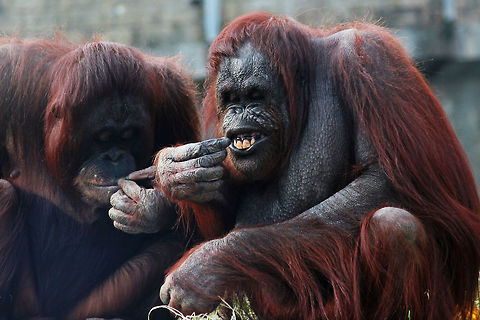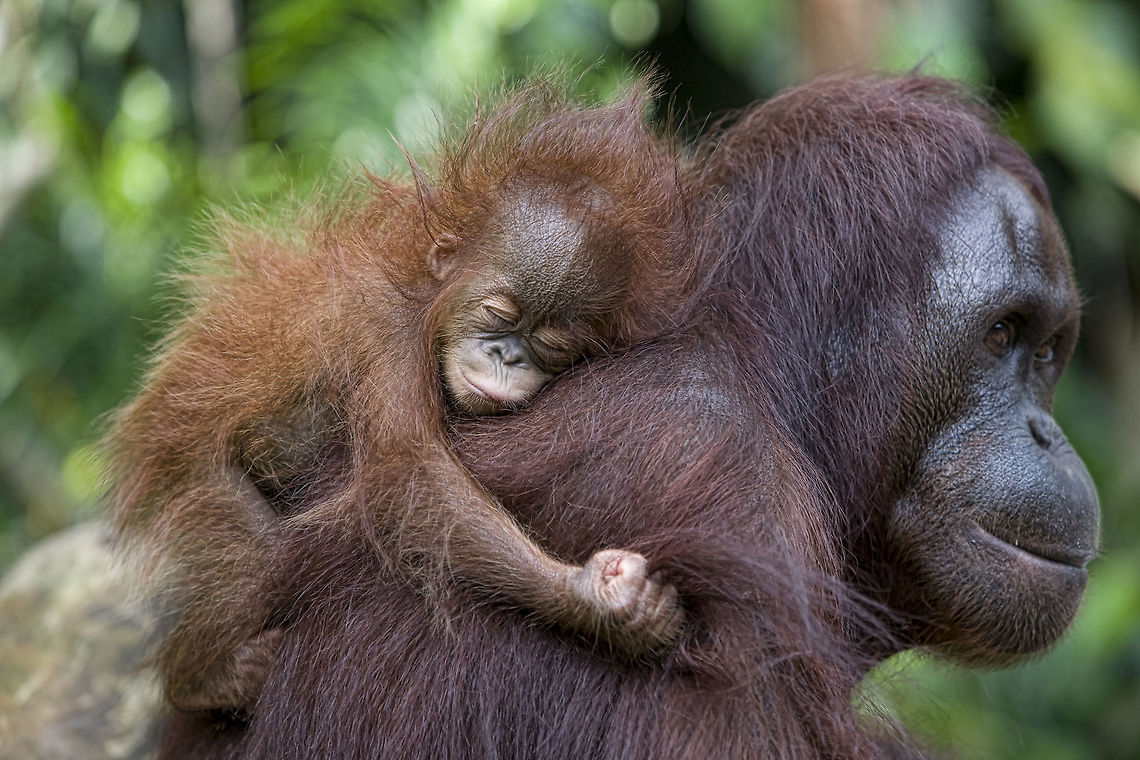
The Bornean orangutan, ''Pongo pygmaeus'', is a species of orangutan native to the island of Borneo. Together with the Sumatran orangutan, it belongs to the only genus of great apes native to Asia.
Similar species: Primates
By Anneyoungimages
All rights reserved
Uploaded Apr 19, 2012. Captured Oct 10, 2009 09:44.

comments (3)
Imagine that you come home one day to find that your house has been completely destroyed. What if your entire town was destroyed? You’re scared, hungry, and your family is homeless. You will not be properly compensated, and the ones who did this to you will probably not be punished. In fact, they may also steal your babies and take your life. This is the life for the Bornean orangutan.
Bornean orangutans (Pongo pygmaeus), the largest tree-dwellers on the planet, are native to the island of Borneo. Their long arms allow them to swing through the trees as they search for fruit, vegetation, bark, and insects. In fact, they eat more than 400 types of food! They are intelligent, gentle, shy, have distinct cultural patterns, and use tools to solve problems. They have been observed using spears to catch fish, leaves to wipe off feces, branches as bee swatters, leafy branches as umbrellas, and sticks as backscratchers!
Bornean orangutans are critically endangered, with palm oil plantations, deforestation, hunting, human conflict, and poaching as the most severe threats to their survival. In particular, the farming of palm oil has wreaked havoc on the ecosystem. Palm oil is one of the most commonly used vegetable oils on the planet, and is found in packaged foods, backed goods, and personal care products. But, the worldwide demand for palm oil has come at an enormous cost. Huge areas of forest have to be cleared to create space for palm oil plantations in Southeast Asia. When combined with logging and forest fires, there goes the neighborhood for the Bornean orangutan. What was once a lush rainforest with majestic trees has been reduced to stumps. Rivers have turned brown, the creatures are no more, and birdsong has been replaced by the sound of chainsaws. Another complication is the fact that female orangutans can only reproduce once every 6-8 years, which makes them the slowest breeders of all land mammals. Orangutan numbers are slow to rebound, so even modest declines in their numbers can lead down the path to extinction. And, sadly, mothers are often killed in order for humans to take their babies for sale in the pet trade. At least 200-500 young orangutans suffer this fate every single year.
Their populations have declined more than 50% over the past 60 years, and their habitat by 55% over the last 20 years! In the past 16 years alone, more orangutans have been lost than still remain alive. Scientists estimate that another 22% will be lost by 2025. They are truly on the edge of existence. The brink of extinction. Regardless, extinction is not an inevitable yoke that orangutans are destined to bear. But, their survival depends on enough people in the world waking up from their slumber and taking personal responsibility. What can you do? Support organizations that are working to protect orangutans, avoid buying products that contain palm oil, contact companies and ask them to stop putting palm oil in their products, raise awareness by sharing posts like this one with friends, and lead by example. Today is International Orangutan Day, the perfect day to get serious about protecting these glorious creatures! {Spotted by JungleDragon user, Anneyoungimages} #JungleDragon Posted 6 years ago